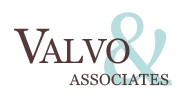Businesses who file visa petitions on behalf of employees through the United States Citizenship and Immigration Services (USCIS) could soon face significantly longer timelines and steeper fees for doing so. A notice of proposed rulemaking in the Federal Register at the beginning of 2023 details the potential upcoming changes.
The fee changes apply to various petitions and visa types, with fee increases upwards of 2,050%. According to the notice, the agency suggests these excessively high fee increases would improve processing times while fostering better service experiences for those working with USCIS. We have heard this from USCIS numerous times before in the past 34 years. Unfortunately, the goal has never been achieved.
Below is a rundown of the proposed fee increases.
Form I-129 Petitions for Nonimmigrant Workers
| Visa Type | Fee Increase | Percentage Increase |
| H-1B/H-1B1 | $460 to $780 | 70% increase |
| H-1B Cap Registration | $10 to $215 | 2,050% increase |
| L-1 | $460 to $1,385 | 201% increase |
| E-1/E-2 | $460 to $1,015 | 121% increase |
| TN | $460 to $1,015 | 121% increase |
| O-1 | $460 to $1,055 | 129% increase |
| R-1 | $460 to $1,015 | 121% increase |
On top of these fee increases, each Form I-129 petition would have a new and separate $600 filing fee labeled “Asylum Program Fee.” The notice indicates the reasoning for this new fee is to fund the Asylum Program is because “DHS is committed to reducing barriers and promoting accessibility to immigration benefits.”
Japanese nonimmigrants on E-1 or E-2 Visas previously had the option of going back to Japan and paying a $205 fee to apply there or staying in the US and paying $460. Logically, the $255 difference would be less than that of a plane ticket – justifying applying from the United States. However, an increase to $1,015 means it might be more logical to go back to Japan to apply instead of staying in the US where the process may take significantly longer anyways.
The H-1B Cap increase, in particular, will have a major impact on foreign students graduating in the US. Previously, these students would pay $10 to enter into a lottery to potentially secure an H-1B Visa. Now, just entering the lottery would cost $215 as noted in the above chart.
Form I-140/I-485 Petitions
Fee increases for these petitions are indicatively lower, with Form I-140 petitions increasing from $700 to $715 (2% increase) and Form I-485 Petitions increasing from $1,140 to $1,540 (35% increase). However, the $600 “Asylum Program Fee” also applies to all Form I-140 petitions under the current proposal, nearly doubling the current amount for some employer-sponsored green cards.
Form I-907 Premium Processing
Another aspect of this proposal is a change to processing times for certain petitions. Form I-907 petition processing times would increase from 15 calendar days to 15 business days. This is no small increase as 15 calendar days is simply 15 days while 15 business days constitutes nearly an entire month.
This proposal indicates that increased fees are to address current backlogs and processing times. Current backlogs of both visa applications and green card renewals must be addressed, though the claims of decreasing processing times appear to run contradictory to this proposed increase for premium processing.
I previously sat on the committee that helped develop the policies and rules for premium processing. I specifically fought for shorter processing times and adamantly opposes any such change to 15 calendar days (or longer).
At Valvo & Associates, we serve, lead, and support businesses in the immigration process. Contact our team of experts for assistance with your biggest business immigration needs.
There is currently a public comment period for these proposed rule changes. You can submit comments here.

